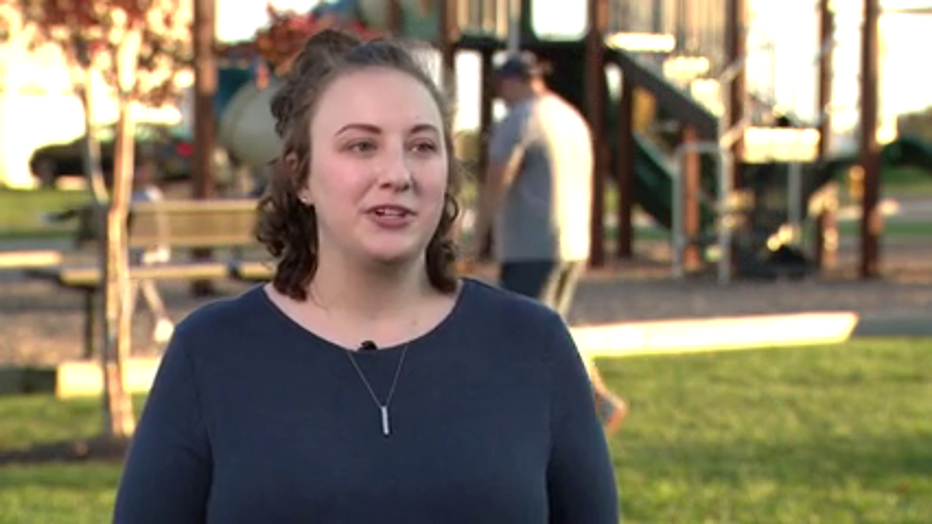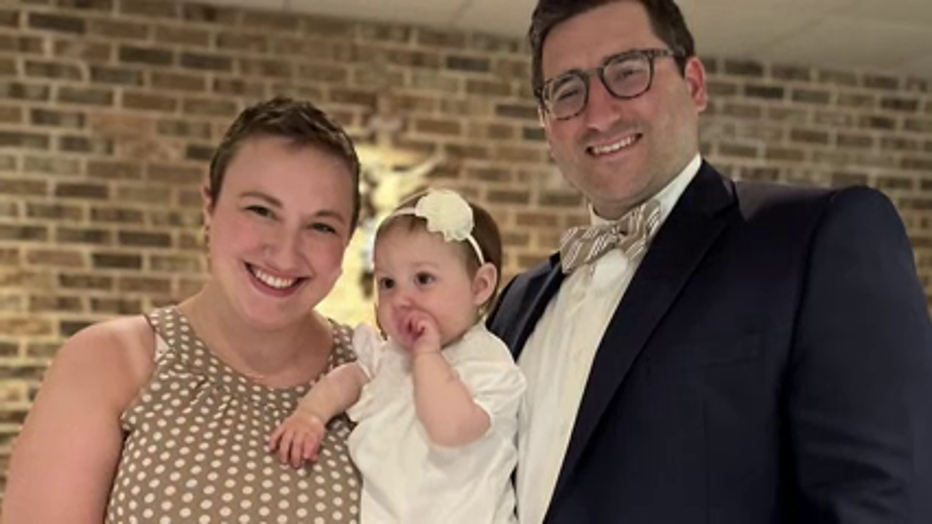Maryland teacher shares her breast cancer journey to encourage young women to get checked

Breast cancer rates increase among younger women
The number of young women getting breast cancer is on the rise. A Maryland woman hopes her story will encourage others under the age of 30 to get checked.
The number of young women getting breast cancer is on the rise.
A Maryland woman hopes her story will encourage others under the age of 30 to get checked.
It was the height of the pandemic.
Alexis Anzmann was just 26 and nearly seven months pregnant when she noticed a lump in her breast.
Her doctor brushed it off as a side effect of motherhood.
"He just told me he felt it, checked it, said it’s probably just a clogged milk duct, it will resolve when you breastfeed," Anzmann said.

Weeks after having her daughter the Frederick County school teacher went for her routine checkup and the lump was still there.
"It had not resolved no matter what I had been trying at home and that’s what’s when the doctor who delivered my daughter said I think we need to go get this checked out," she recalled.
"It was confirmed that it was breast cancer. Then, I had a pet scan and that was what revealed that it had metastasized to my bones and my liver."
With no family history of breast cancer or risk factors, the new mother was caught off guard by the diagnosis at such an early age.
"When we found out it was Stage Four I collapsed at that point," Anzmann said. "It was very overwhelming. I shut down for the first couple months."
And she’s not alone.
New research from the CDC says the number of women under the age of 30 being diagnosed with breast cancer is increasing.
"Recent data is suggesting that women at the age of 20 to 29 have been five percent higher risk of breast cancer and between 30 to 39, 19 percent," said Dr. Ankit Madan, an oncologist with MedStar Health.

Dr. Madan says the breast cancer they are finding among younger women also tends to be more aggressive due to their age.
"Sometimes their complaints can be overlooked at for a few months, or a wait and watch approach is taken for younger people, and then it turns out they get a higher stage at the time of diagnoses," he added.
Anzmann even took to social media in hopes it would get the attention of younger women and inspire them to get checked.
"Because we don’t get mammograms until we hit 40, a lot of times by the time it’s found its already progressed, and it’s too late at that point to be a cure," she said.
Now, months after treatment, she’s in remission, but that doesn’t mean her treatments are over.
"It’s really just a never-ending process," Anzmann said.
"People say, ‘Oh great you don’t have cancer right now you’re good,’ and for most people I say ‘yeah I’m good right now but it’s never going to end for me.’"
And her fight to thrive and be by her daughter’s side will continue.
"I’ll be lucky to get to see my daughter go to kindergarten," Anzmann said. "The statistics, while outdated, still only estimate two to five years of survival, so I’m just hoping every day that I can make it there. I can either let it take my life and let me leave in a shell or be nothing, or I can take it and live the life whatever time I have left and make it the best that I can."

Dr. Madan says if you have a family history of breast cancer you should be screening ten years prior to when that person was diagnosed.
If you don’t – he says self-exams are helpful and mammograms every few years.
But keep in mind many insurance programs have specific guidelines for mammogram coverage so be sure to know what yours is.
For more information on how you can support the fight against breast cancer Anzmann suggests checking out Metavivor.

